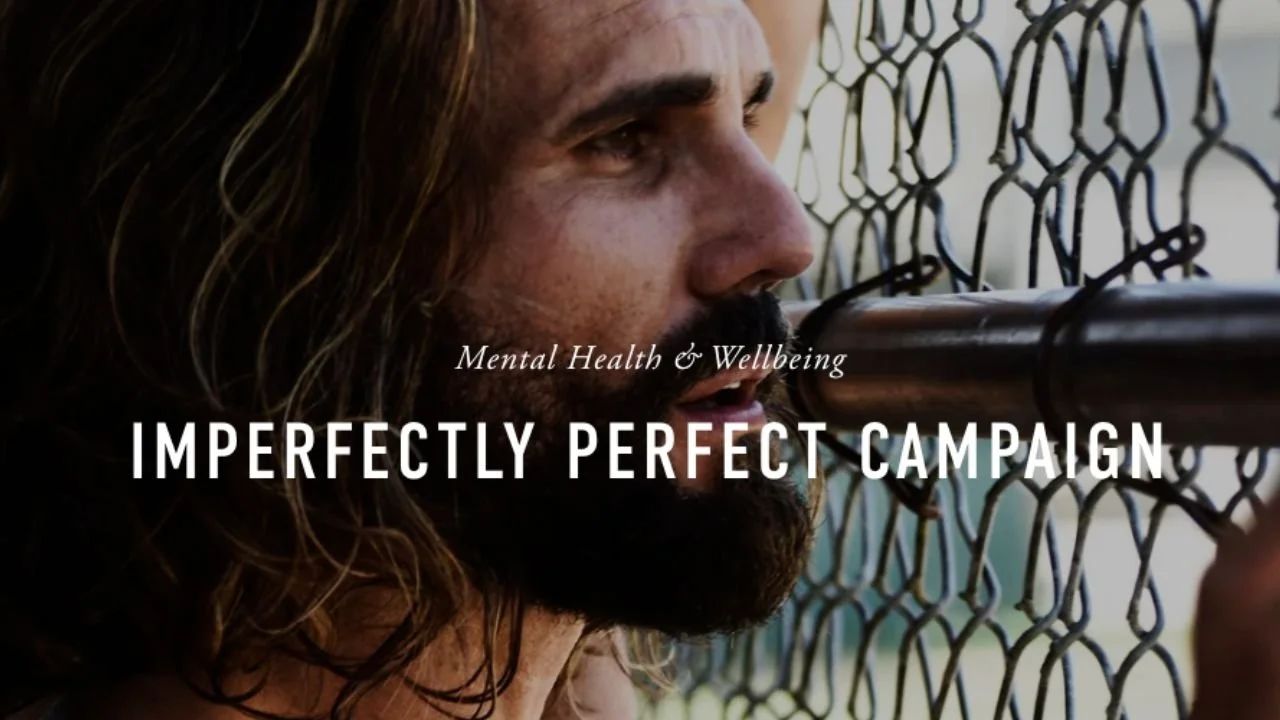When the Imperfectly Perfect Campaign launched, media outlets were quick to dub it the “celebrity campaign,” spotlighting high-profile public figures in support. But founder Glenn Marsden swiftly reframed the narrative in a network interview, reminding audiences: mental health isn’t exclusive to celebrities, it affects professionals across all industries, from healthcare and law enforcement to education, finance, and manufacturing.
Recognising this breadth is core to the Imperfectly Perfect Campaign’s mission: to share stories from those we think have it all, because truth is, we’re all human.
A TV presence, a radio voice, a corner office, or a corporate title doesn’t make you immune. Behind every polished performance or camera-ready smile is a person, just like you, navigating the quiet battles you may never see.
Yet, so often, the media paints a picture of celebrities and public figures as if they “have it all” the perfect life, endless success, and no struggles. This portrayal couldn’t be further from the truth. It’s this harmful myth, the idea that fame or success erases mental health challenges, that inspired us to write this article.
Let’s pull back the curtain and show what it really takes to survive, and truly shine, in the entertainment industry.
What It Takes to Survive, and Shine, in Entertainment
Breaking in often means enduring unpaid auditions, juggling day jobs, and facing relentless rejection, all while perfecting your craft under a microscope. Your appearance, demeanour, and words are constantly evaluated. Expressing mental health struggles can feel like career sabotage, with managers warning: “If they knew, it might damage your prospects.” And when work dries up? A stint in the “real world” can signal to the media, and the industry, that you’re finished.
These pressures compound: erratic schedules, financial insecurity, toxic environments, and isolation all wear you down. Studies show elevated rates of anxiety, depression, and burnout among entertainment workers globally.
The Reality in Numbers: When Creativity Meets Crisis
Global & UK Insights
In England, musicians rank fourth among occupations with the highest suicide rates, trailing only behind construction, finishing trades, and agriculture.
Within the broader “culture, media and sport” category, male suicide rates are 20% above the average; for women, they’re a staggering 69% higher
United Kingdom Mental Health Crisis
Nearly 30% of UK musicians report poor mental health
A pre-pandemic study found touring professionals face clinical depression and stress at “greatly elevated” rates—and suicidality five times higher than the U.S. average
Australian Data: A Disturbing Picture
Australian entertainment industry workers experience suicide ideation 5–7 times more than the general population in a year—and 2–3 times more over a lifetime
Road crew members are particularly vulnerable: nearly 9 times more likely to experience suicidal thoughts
Anxiety levels are 10 times higher, and depression symptoms 5 times higher, in this sector than among the broader population
Half of surveyed workers suffer moderate to severe anxiety, and 60% have sought mental health treatment
Broader Creative Industry Trends
A global study revealed two-thirds of creative professionals report work-related health issues, including anxiety, burnout, and depression
Why the imperfectly perfect campaign’s Story Matters
By spotlighting figures we recognise, entertainers, artists, and professionals, IPC dismantles the myth of the untouchable celebrity. These stories serve a dual purpose:
Humanisation: Reminding us that struggles don’t stop at success or fame.
Solidarity: Encouraging others in any field to speak up, seek support, and dismantle stigma.
The next time you scroll past a headline or social post about someone in the public eye, before you criticise their choices, laugh at their mistakes, or dismiss their struggles, pause.
You don’t know the battles they’re fighting. You don’t see the weight they carry behind the scenes.
Mental health does not discriminate. It doesn’t care about fame, followers, or net worth. The only thing that changes is that, for some, the struggle plays out under the unforgiving glare of the public eye.
And that is exactly why we must change the narrative, together.









